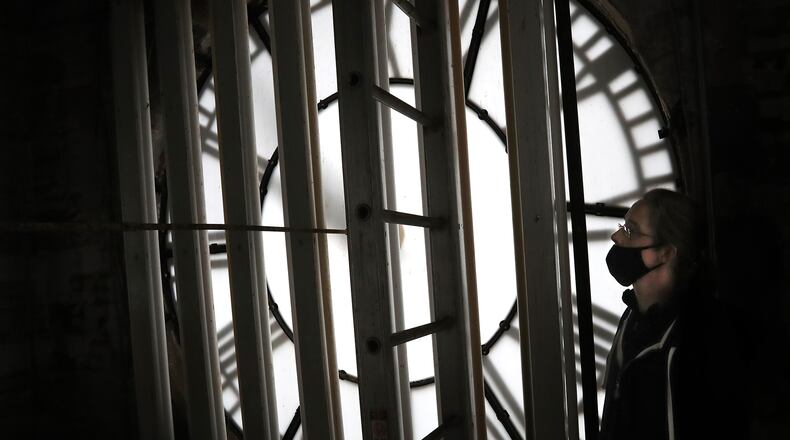“I actually kind of claimed it. I think it was about 10 years ago,” she said. “I came into work on a Monday and Roger [Chief Executive Officer] just came out of his office and said, ‘I’m going to go set the clock,' and I said, ‘let me go with you, I’d like to see that,’ and I just kind of said this is my job now."
Eichensehr enjoys setting the clock not only because of what it symbolizes but because she says, “it’s a wonderful ritual to have.”
“The symbolism of a clock when you work at a historical society and a historical museum, it’s an emblem of what you do and it’s physically part of your building. It’s a powerful symbol for us to be in this building and to have this clock tower,” she said.
“It’s not quite hovering over the city but it’s remote. You look up there and it’s a part of a building and then you realize at some point there’s a human being that goes up in there. There’s a human agency at the center of that big, remote machine/building that you’re looking at. Getting to be that person is really neat because I really enjoy it.”
Eichensehr added that it’s great for the clock to be a community symbol, but is curious if people use it.
“I’ve always been interested whenever somebody comes up here and does something, if people look up at it. I’m curious to know if anybody does use this, even though it’s not precisely correct, to just get a sense of what the time is,” she said. “I mean, even if they don’t, even it if is just a symbol, it’s still important.”
Daylight Saving Time ends at 2 a.m. Sunday and you’re reminded to turn your clock back one hour.
About the Author

